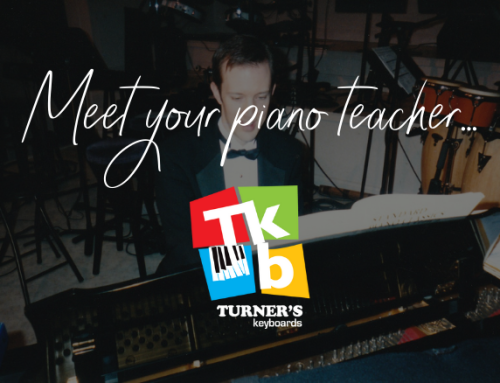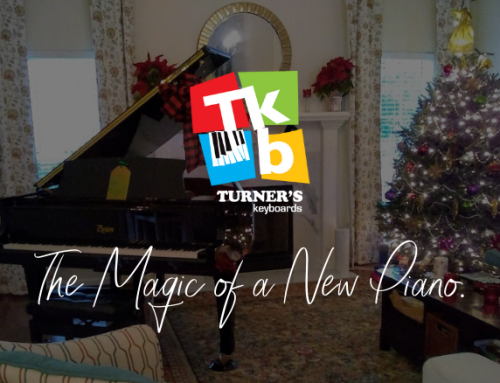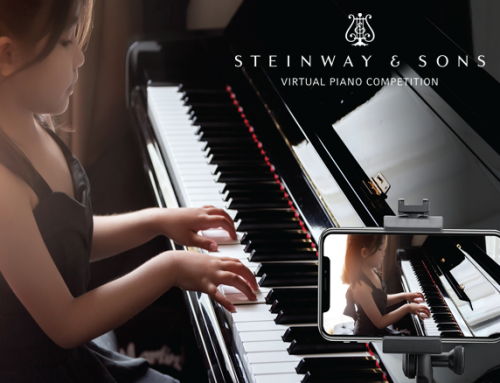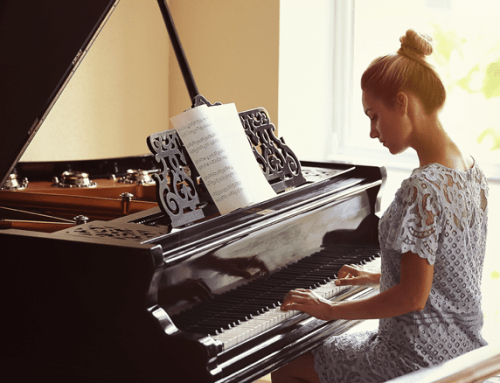Giving your child the gift of a musical education is beneficial in many ways. Almost all children LOVE music! However, parents are often faced with the challenge of knowing at what age it would be appropriate for their child to start piano lessons.
WHY LET CHILDREN LEARN PIANO
Studies have shown that music education enhances a child’s comprehension abilities, helps them with math concepts, assists in the development of fine motor skills, and helps to build self-confidence. Many children with special needs have been known to excel at music even though they are unable to communicate or participate in regular structured activities. In general, music enhances the lives of many children and adults as well.
HOW YOUNG IS TOO YOUNG?
Children under the age of five who show an interest in the piano should be allowed to explore and learn on their own time table. They probably won’t respond well to an adult-imposed learning structure, and may not have the hand size or manual dexterity needed to actually play the piano.

Instead, parents of young children can do many other things to cultivate a love for music. Singing, dancing, listening to recorded music, and enrolling in a good preschool music program will allow a child to have fun exploring music and prepare for studying an instrument when the time is right. Encourage younger children with musical toys and instruments that let them explore on their own.
THE REQUIREMENTS FOR READINESS
The best time to start piano lessons will be different for every child, but most will be ready between the ages of 5 to 9 years old. Here is a short checklist of things a child needs to get a good start as a piano student:
- SIZE OF HAND: A child who is taking piano lessons should be comfortable placing five fingers on five adjacent white keys. For some five-year-olds, that’s literally a big stretch! Before beginning piano lessons, make sure your child’s hands are large enough to comfortably use a keyboard.
- MANUAL DEXTERITY: Before a child begins taking piano lessons, he or she needs to be able to move individual fingers independently of one another. A child who can only play by picking out a tune with one finger is probably not yet ready.
- INTEREST IN MUSIC AND DESIRE TO LEARN: At any age, motivation is an important factor of readiness. If a child does not want to take piano lessons, then it’s probably best to spend time simply cultivating interest in music.
According to Piaget’s stages of child development, at the age of 5, children are in the preoperational stage (roughly ages 2-7). The cognitive, motor, and language developments during this stage makes the age of 5 an exciting time to begin piano lessons so long as the other readiness indicators are present.
WHAT ABOUT READING SKILLS?
Piano students who are taught by a book based method may do better if they begin at age seven or eight, after they are beginning to read words with more fluency. Students who begin with an ear-based method, (such as the Suzuki Method), can start earlier at age five or six.
IS IT EVER TOO LATE?
The answer to this question is a resounding NO. Piano students can start lessons after age eight and all the way up to adult. The advantages that younger children have, such as suppler hands and the ability to easily acquire complex brain skills, can be made up for in older children and adults by independence, patience, self-control, and an internal motivation to learn that younger children may not have.
So what is the best age to begin piano lessons? As long as all the requirements of hand size, finger independence, and desire are met, the answer is as soon as possible!







My granddaughter is 19 months old, whenever she comes over we set up a casico portable piano, she plays on the keys and knows that she can make sounds with both hands touching the keys, she likes to drag her fingers across the keys from one and to the other. Should we continue with this starting methof?
Learning proper technique is key to fostering a good pianist. If she is showing interest, even at this early age, you should look into lessons with a trained teacher. Piano teachers can help you assess your student’s readiness and level ability and help them to excel and achieve in the future. Congratulations on having a burgeoning pianist!
My daughter started to play with her toy keyboard when she was just 1 years old and she managed to play few songs by 2 years. We put her on piano school when she was almost 4 years old and after 4 lessons we bought her a piano. Her fingers are already trained for piano keys and can play few songs. https://youtu.be/hO5r3XQdgZk